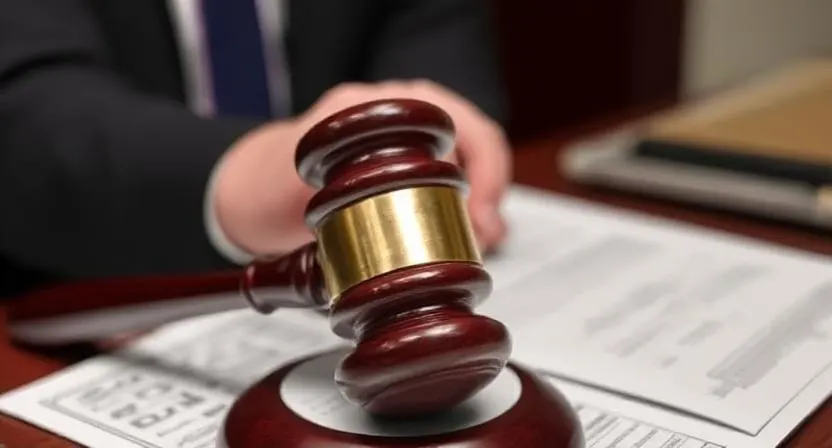Explore the ramifications for federal workplace rights and learn more about the specifics of the cpsc fired employees lawsuit.
Introduction
With the responsibility of safeguarding the public from harmful consumer goods, the Consumer Product Safety Commission (CPSC) has come under increasing fire for its hiring practices. Legal, political, and public attention have been drawn to the cpsc fired employees lawsuit litigation, one of the most complex and contentious topics to emerge in recent years. The scenario, its legal ramifications, and its implications for federal employees and government accountability are all thoroughly and authoritatively broken out in this essay.
Recognizing the Function of the CPSC Fired Employees Lawsuit
Overseeing the safety of consumer goods like toys, electronics, home chemicals, and more is the CPSC, an independent federal regulatory body. Its goal is to shield the general public from irrational risks of harm or death that come with thousands of different kinds of consumer goods.
The agency has significant influence over importers and manufacturers thanks to its authority, which comes from a number of federal laws, notably the Consumer Product Safety Act. Professionals covered by federal labor and employment regulations, including as analysts, engineers, lawyers, and detectives, work for the cpsc fired employees lawsuit internally.
The history of the controversy surrounding the fired employees
Former cpsc fired employees lawsuit have filed a complaint in recent years, claiming whistleblower rights were violated, retribution occurred, and they were wrongfully terminated. At the heart of the matter are allegations that the agency:
- Employees who were unlawfully fired or compelled to leave
- retaliated against those who came forward with information concerning wrongdoing or safety issues
- violated civil service protections and federal employment statutes
- suppressed internal opposition and falsified documents
The plaintiffs contend that these acts compromise the agency’s credibility and stifle vital oversight responsibilities.
Important Claims in the CPSC Fired Employees Lawsuit Case
1. Retaliation against Whistleblowers
The claim that cpsc fired employees lawsuit leadership retaliated against staff members who voiced management or safety concerns is among the most grave. These workers reportedly experienced:
- Promotions
- hostile workplaces
- Exclusion from important projects
- Termination without following the correct procedures
The Whistleblower Protection Act, a federal legislation that protects workers who legally reveal information they reasonably believe to be true, may be broken by such acts:
- breaking laws, regulations, or rules
- egregious poor management
- A waste of money
- Abuse of Power
- significant and particular risk to public health or safety
2. Unsuitable Termination Procedures
Numerous litigants allege they were subjected to unjustified internal investigations, refused proper hearings, or fired without reason. These actions may be against federal statutes, civil service rules, and internal HR policies.
The Law that Oversees Federal Employee Rights
Protections for Civil Service Employees
Federal workers are shielded from arbitrary termination by a stringent framework. These consist of:
- appeals from the Merit Systems Protection Board (MSPB)
- EEO (Equal Employment Opportunity) grievances
- Title 5 of the U.S. Code protection
Affected employees may seek administrative or legal remedies if due process is broken, as seems to have been done in the CPSC instance.
Investigations by the Office of Special Counsel (OSC)
The U.S. Office of Special Counsel (OSC) sometimes has jurisdiction over instances involving whistleblower retaliation. After looking into allegations, the OSC may suggest reparations or disciplinary measures. Whistleblowers may turn to the MSPB or federal courts for relief if OSC support is insufficient.
Effect on Public Trust and CPSC Fired Employees Lawsuit Operations
The lawsuit’s wider ramifications impact not just the parties concerned but also the public’s confidence in the CPSC’s capacity to carry out its mandate in an impartial and capable manner. Discouragement of safety professionals’ voices could result in:
- Unreported safety infractions
- Product recall delays
- Reduced enforcement of regulations
- Consumer danger has increased.
For organizations like the CPSC, transparency and moral leadership are crucial, and cases like this one highlight structural weaknesses.
Remarks from the Plaintiffs and the Agency
The CPSC has mainly denied misconduct, stressing that all personnel decisions adhered to the proper procedures, even though the plaintiffs have continued to be outspoken in their court documents and media appearances.
But according to internal documents and leaked emails that were referenced in the case, there might have been concerted attempts to silence critics and create narratives that supported agency leadership.
Previous Cases and Related Federal Lawsuits
The instance of CPSC is not unique. Similar cases have been filed against several government agencies, such as the FDA, EPA, and Department of Veterans Affairs, where staff members claimed:
- Retaliatory dismissals
- suppression of research findings
- hostile work environments
Court decisions in favor of whistleblowers in a number of cases resulted in:
- monetary settlements
- Changes to policies
- Apologies in public or changes in leadership
A precedent set by these cases may influence how the CPSC litigation turns out.
Present Situation of the CPSC Fired Employees Lawsuit Case
The matter is currently pending in federal courts, where administrative errors and potentially incriminating correspondence have been discovered through discovery procedures. According to legal experts, if the lawsuit is not resolved, it may result in:
- Hearings held in public
- Congressional investigations
- Additional media attention
The conclusion might also decide if the government launches more internal inquiries.
The Implications for Federal Workers
The case is a clear reminder of how crucial legal knowledge and worker rights are in the federal system. Federal workers ought to:
- Keep track of all unfavorable employment actions.
- Understand their rights under whistleblower statutes and Title 5
- Retaliation should be reported to the OSC or MSPB.
- Seek legal advice if they are fired unfairly.
FAQs
Q1: What led to the case against CPSC?
Employees who claimed they were fired for voicing internal concerns about agency operations and acting as whistleblowers set off the lawsuit.
Q2: Does American law protect whistleblowers?
Although implementation and interpretation may differ, federal employees do have certain legal rights under the Whistleblower Protection Act.
Q3: What is the defense offered by the CPSC?
According to the CPSC, all internal HR procedures were followed and the terminations were based on subpar performance.
Q4: Will other federal agencies be impacted by this case?
Of course. If the workers prevail, it might result in changes to the law and encourage similar cases in other government departments.
Q5: What is the potential duration of the lawsuit?
Especially when appeals are involved, federal lawsuits can drag on for months or even years. It may take until late 2025 or later to find a solution.
Conclusion
A significant shift in how federal agencies address internal dissent, whistleblowing, and employment procedures may be seen in the cpsc fired employees lawsuit. As the case progresses, it might set significant standards for:
- Protections for Federal Employees
- Transparency in government
- Accountability of the organization
As this well-known case continues to influence discussions about federal employment ethics and regulatory integrity, all eyes are on the courtrooms.















Leave a comment